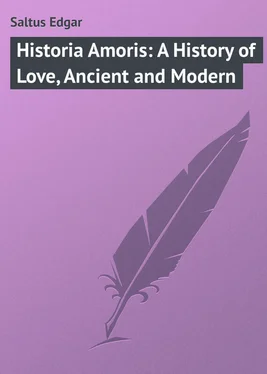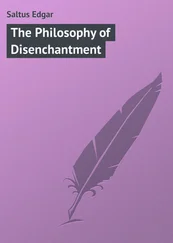Like the day it was too fair. Presently the duel occurred. Lacedæmon, trailing the pest in her tunic, ravaged the Eleusinian glades. Pericles died. Aspasia disappeared. The duel, waning a moment, was resumed. It debilitated Sparta, exhausted Athens, and awoke Thebes, who fell on both but only to be eaten by Philip.
It would have been interesting to have seen that man and his Epeirote queen who hung serpents about her, played with them among poisonous weeds and who, because of another woman, killed her king, burned her rival alive, and gave to the world Alexander.
It would have been more interesting still to have seen the latter when, undermined by every vice of the vicious East, with nothing left to conquer, with no sin left to commit, with no crime left undone, he descended into the great sewer that Babylon was and there, in a golden house, on a golden throne, in the attributes of divinity was worshipped as a god. Behind him was a background of mitred priests and painted children, about him were the fabulous beasts that roamed into heraldry, with them was a harem of three hundred and sixty-five odalisques apportioned to the days of the year, while above swung the twelve signs of the zodiac. In that picture Rome was to find the prototype of her Cæsars, as in it already Hellas has seen the supplanting of Aphrodite by Ishtar.
Greece, still young, lingered briefly, then without decrepitude, without decadence, ceased, nationally, to be. Aphrodite, young too, died with her. As Venus Pandemos Rome evoked her. The evocation was successful. Venus Pandemos appeared. But even from Olympus, which together with Hellenic civilization, Rome absorbed, Aphrodite had already departed. Those who truly sought her found her indeed, but like the art she inspired only in marble and story.
It used to be a proverb that Apollo created Æsculapius to heal the body and Plato to heal the soul. Plato may have failed to do that. But he heightened its stature. It has been loftier since he taught. In his teaching was the consummation of intellect. His mind was sky-like, his speech perfection. Antiquity that thought Zeus must have revealed himself to Pheidias, thought, too, that should the high god deign to speak to mortals, it would be in the nightingale tongue of refinement which Plato employed. The beauty of it is not always apprehensible. His views, also, are not always understood. Yet an attempt must be made to supply some semblance of the latter because of the influence they have had.
“I know but one little thing,” said Socrates. “It is love.” Socrates was ironical. That which it pleased him to call little, Plato regarded as a special form of the universal law of attraction. His theories on the subject are contained in the Phædrus and the Symposion , two poetically luxurious works produced by him in the violet-crowned city during the brilliant Athenian day, before Socrates had gone and Sparta had come.
The Symposion is a banquet. A few friends, Phædrus and Pausanias, men of letters; Eryximachus, a physician; Aristophanes, the poet; Socrates, the seer, have been supping at the house of Agathon. By way of food for thought love is suggested. Discussion regarding it follows, in which Socrates joins – a simple expedient that enabled Plato to put in his master’s mouth the æsthetic nectar of personal views of which the real Socrates never dreamed.
Among the first disputants is Phædrus. In his quality of man of letters he began with extravagant praise of Eros, whom he called the mightiest of all gods, the chief minister of happiness.
To this, Pausanias, also a literary man and therefore indisposed to agree with another, objected. “Phædrus would be right,” he said, “if there were but one Eros. But there are two. Love is inseparable from Aphrodite. If there were only one Aphrodite there would be only one love. But there are two Aphrodites. Hence there must be two loves. One Aphrodite is Urania or celestial, the other Pandemos or common. The divinities should all be lauded. Still there is a distinction between these two. They vary as actions do. Consider what we are now doing, drinking and talking. These things in themselves are neither good nor evil. They become one or the other in accordance with the way in which we do them. In the same manner, not every love, but only that which is inherently altruistic, can be called divine. The love inspired by Aphrodite Pandemos is essentially common. It is such as appeals to vulgar natures. It is of the senses, not of the soul. Intemperate persons experience this love, which seeks only its own gross end. Whereas the love that comes of Aphrodite Urania has for object the happiness and improvement of another.”
Конец ознакомительного фрагмента.
Текст предоставлен ООО «ЛитРес».
Прочитайте эту книгу целиком, купив полную легальную версию на ЛитРес.
Безопасно оплатить книгу можно банковской картой Visa, MasterCard, Maestro, со счета мобильного телефона, с платежного терминала, в салоне МТС или Связной, через PayPal, WebMoney, Яндекс.Деньги, QIWI Кошелек, бонусными картами или другим удобным Вам способом.
Herodotus, I., 199.
Strabo, XVI., xi., 532. Baruch, VI. Justinus, XVIII. St. Augustin: Civit. Dei, IV., 10. Eusebius: Vita Constantini, III., 53-56. Cf. Juvenal, Satir. 9: Nam quo non prostat femina templo?
Renan: Le Cantique des Cantiques.
Paraleipomena, XIII.
Philostratus: Apollonius Tyanensis, IV., 16.
Ethica S. Basilii.
Bérard: Les Phéniciens et l’Odyssée.
Opera et Dies, 70.
Xenophon: de Republica Lacedæmoniorum.
Rossetti, D. G.
Epistolæ Heroïdum, XV.
Athenæus, XIII. Musonius: de Luxu. Becker: Charikles.












